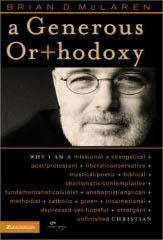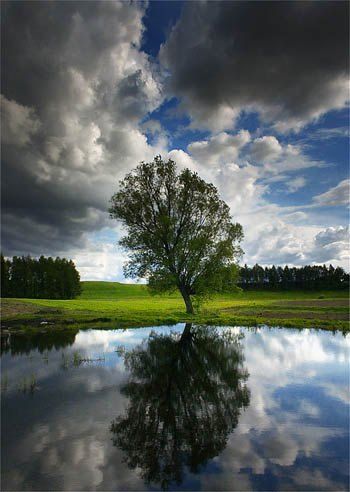I feel very blessed to be able to participate in Emmanuel Methodist Church’s Sacred Music Sunday this morning. Every year, the church holds this special service, where the church choir, instead of the usual worship leader, leads the congregation in worship. We all followed the liturgy printed on the handouts, allowing the choir to present their beautiful voices to God during their parts, and joining in majestically when it says ‘congregation joins in’ on the handouts. We sang throughout, in the beginning, after the offering, before the reading of Scripture, after the sermon, before we left. Between each song, one of the church leaders would enlighten us on the background of the song as well as its composer. It gave so much more meaning to those songs. And we only sang hymns (my favorite)! These were hymns that spoke of the glory of God in all His majesty. Many of them speak of all creation joining in praise of God the Creator. And none can be as magnificent as the one written in the 13th century by our brother St. Francis of Assisi, lover of nature - All Creatures of Our God and King!
All creatures of our God and King
Lift up your voice and with us sing,
Alleluia! Alleluia!
Thou burning sun with golden beam,
Thou silver moon with softer gleam!
O praise Him! O praise Him!
Alleluia! Alleluia! Alleluia!
Thou rushing wind that art so strong
Ye clouds that sail in Heaven along,
O praise Him! Alleluia!
Thou rising moon, in praise rejoice,
Ye lights of evening, find a voice!
O praise Him! O praise Him!
Alleluia! Alleluia! Alleluia!
Thou flowing water, pure and clear,
Make music for thy Lord to hear,
O praise Him! Alleluia!
Thou fire so masterful and bright,
That givest man both warmth and light.
O praise Him! O praise Him!
Alleluia! Alleluia! Alleluia!
Dear mother earth, who day by day
Unfoldest blessings on our way,
O praise Him! Alleluia!
The flowers and fruits that in thee grow,
Let them His glory also show.
O praise Him! O praise Him!
Alleluia! Alleluia! Alleluia!
And all ye men of tender heart,
Forgiving others, take your part,
O sing ye! Alleluia!
Ye who long pain and sorrow bear,
Praise God and on Him cast your care!
O praise Him! O praise Him!
Alleluia! Alleluia! Alleluia!
And thou most kind and gentle Death,
Waiting to hush our latest breath,
O praise Him! Alleluia!
Thou leadest home the child of God,
And Christ our Lord the way hath trod.
O praise Him! O praise Him!
Alleluia! Alleluia! Alleluia!
Let all things their Creator bless,
And worship Him in humbleness,
O praise Him! Alleluia!
Praise, praise the Father, praise the Son,
And praise the Spirit, Three in One!
O praise Him! O praise Him!
Alleluia! Alleluia! Alleluia!
During those moments, it really felt as if we were ‘halfway to Heaven’, as the pastor joked during the sermon. Even now, I am still in awe of the whole experience. I can still remember the electronic organs playing in grand accompaniment; the powerful voices of the entire congregation when we sang our hearts out; the choir conductor joining in with her lovely soprano counter-melodies to lift the songs up another level; the tears that I shed when we sang ‘My Jesus I Love Thee’, a hymn written by a sixteen year old. Worshipping God, of course, is not about our own experiences, but I guess experiences like these are an added bonus!
My Jesus, I love Thee, I know Thou art mine;
For Thee all the follies of sin I resign.
My gracious Redeemer, my Savior art Thou;
If ever I loved Thee, my Jesus, ’tis now.
I love Thee because Thou has first loved me,
And purchased my pardon on Calvary’s tree.
I love Thee for wearing the thorns on Thy brow;
If ever I loved Thee, my Jesus, ’tis now.
I’ll love Thee in life, I will love Thee in death,
And praise Thee as long as Thou lendest me breath;
And say when the death dew lies cold on my brow,
If ever I loved Thee, my Jesus, ’tis now.
In mansions of glory and endless delight,
I’ll ever adore Thee in heaven so bright;
I’ll sing with the glittering crown on my brow;
If ever I loved Thee, my Jesus, ’tis now.
~ William Featherston, 1864
Let all things now living a song of thanksgiving
To God the creator triumphantly raise.
Who fashioned and made us, protected and stayed us,
Who still guides us on to the end of our days.
God's banners are o'er us, His light goes before us,
A pillar of fire shining forth in the night.
Till shadows have vanished and darkness is banished
As forward we travel from light into light.
His law he enforces, the stars in their courses
And sun in its orbit obediently shine;
The hills and the mountains, the rivers and fountains,
The deeps of the ocean proclaim him divine.
We too should be voicing our love and rejoicing;
With glad adoration a song let us raise
Till all things now living unite in thanksgiving:
"To God in the highest, Hosanna and praise!"
~ Katherine Davis, 1892

Praise the LORD.
Praise the LORD from the heavens,
praise him in the heights above.
Praise him, all his angels,
praise him, all his heavenly hosts.
Praise him, sun and moon,
praise him, all you shining stars.
Praise him, you highest heavens
and you waters above the skies.
Let them praise the name of the LORD,
for he commanded and they were created.
He set them in place for ever and ever;
he gave a decree that will never pass away.
Praise the LORD from the earth,
you great sea creatures and all ocean depths,
lightning and hail, snow and clouds,
stormy winds that do his bidding,
you mountains and all hills,
fruit trees and all cedars,
wild animals and all cattle,
small creatures and flying birds,
kings of the earth and all nations,
you princes and all rulers on earth,
young men and maidens,
old men and children.
Let them praise the name of the LORD,
for his name alone is exalted;
his splendor is above the earth and the heavens.
~ Psalm 148: 1-13



